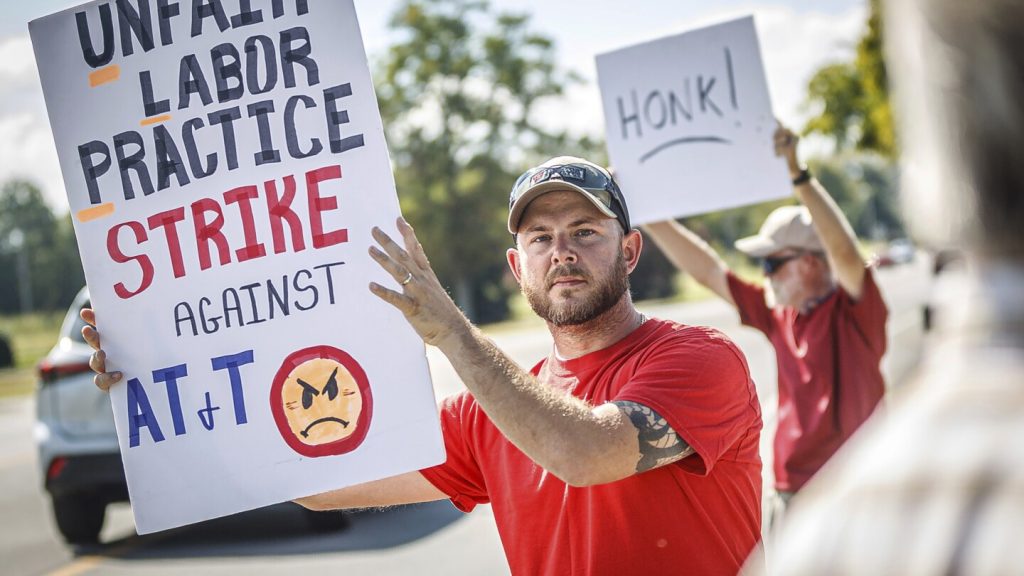The strike is the latest move in a series of ongoing labor disputes between AT&T and the Communications Workers of America. The union accuses AT&T of failing to bargain in good faith and reneging on agreements made during negotiations for a new contract. The strike involves over 17,000 workers across nine states in the Southeast, including technicians, customer service representatives, and others who support AT&T’s residential and business telecommunications network.
The Communications Workers of America filed an unfair labor practice complaint with the National Labor Relations Board, alleging that AT&T had violated labor laws in its bargaining tactics. The union claims that AT&T has not sent representatives to the bargaining table with the authority to make decisions, leading to frustration among workers. AT&T has denied these accusations, stating that they have been engaged in substantive bargaining and are eager to reach an agreement that benefits their employees.
In response to the strike, AT&T has implemented various business continuity measures to ensure that operations continue smoothly and that customers receive the service they expect. The company has stated that they have reached three separate agreements this year covering over 13,000 employees, emphasizing their dedication to resolving labor disputes and reaching mutually beneficial agreements with their workers. However, the union has accused AT&T of sending undertrained managers and contractors to perform technical work during the strike.
As the strike continues, both AT&T and the Communications Workers of America are facing mounting pressure to come to a resolution. Workers on strike are demanding fair treatment, better working conditions, and a new contract that addresses their concerns. The outcome of the strike could have far-reaching implications for labor relations within the telecommunications industry and set a precedent for future negotiations between companies and their workers.
The ongoing dispute between AT&T and the Communications Workers of America highlights the challenges faced by workers in the telecommunications industry as they fight for fair wages, working conditions, and job security. The strike represents a major escalation in the conflict, with thousands of workers participating in the walkout across multiple states in the Southeast. As negotiations continue, both sides will need to find common ground to address the issues raised by the union and reach a resolution that is satisfactory to all parties involved.
The outcome of the strike will not only impact the employees and management at AT&T but also have broader implications for labor relations in the telecommunications sector. The actions taken by both the company and the union during the strike will shape the future of labor negotiations within the industry and set the tone for how companies and workers interact in the years to come. As the strike enters its next phase, the eyes of the labor movement will be closely watching to see how the situation unfolds and what lessons can be learned from this high-stakes showdown between AT&T and its workers.


